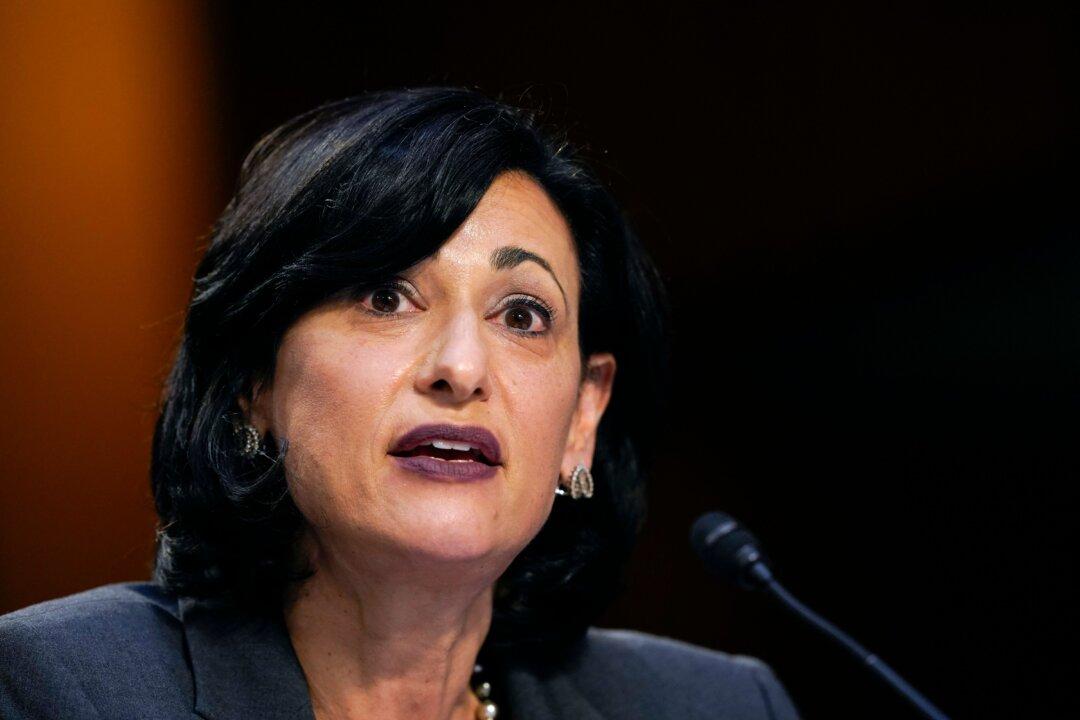Dr. Rochelle Walensky, the head of the Centers for Disease Control and Prevention (CDC), said that three new COVID-19 studies show that the efficacy of the vaccines has dropped among individuals who received their shots early on in the pandemic.
Citing three studies that were released by the CDC’s Morbidity and Mortality Weekly Report, Walensky said on Aug. 18 that the vaccines’ efficacy decreases over time in preventing infection. Although protection against death and hospitalization is “holding up well,” the COVID-19 vaccines’ effectiveness is “waning” in even preventing severe illness or death, she said.





